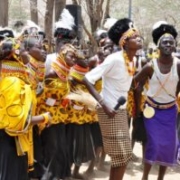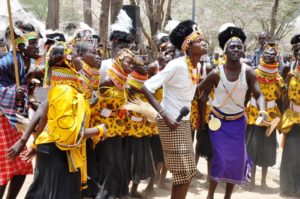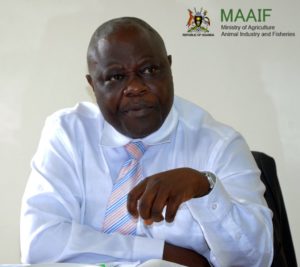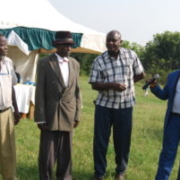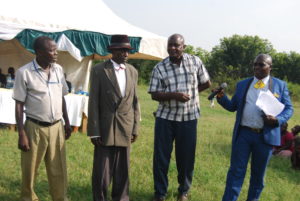Swedish Energy Agency Terminates Carbon Credits Agreement with Green Resources
The Swedish Energy Agency (SEA) is terminating its agreement to purchase carbon credits from the Norwegian forestry company, Green Resources—finally recognizing the devastating impact the company’s plantation has had on local communities in Kachung, Uganda.
Citing the ongoing legal dispute over land and the inability for farmers to graze their cattle within the forest, the SEA’s decision comes after five years of research and advocacy by the Oakland Institute, documenting forced evictions from the land locals depended on for agriculture, grazing, and forest produce.
The Institute’s first report in November 2014, The Darker Side of Green: Plantation Forestry and Carbon Violence in Uganda, exposed the devastating impact of the Green Resources pine plantation. But it was only after the Institute’s third report, released in August 2019, along with the actual eviction notices served to the local farmers, that the SEA announced its suspension of payments, and eventually termination of the agreement in March 2020.
“Despite solid evidence and documentation, Green Resources and its financiers, including the SEA, callously, not only turned a blind eye to the victims of their ‘green’ fraud, but also dismissed our findings,” said Anuradha Mittal, Executive Director of the Oakland Institute. “If they had paid heed to the concerns raised in 2014—which should have been obvious to the SEA if due diligence had been done from the get go—Green Resources could not have gotten away with causing hunger, displacement, and distress amongst the population of 17 villages for this long,” Mittal continued.
On March 10, 2020, Development Today reported that the SEA terminated the agreement because of concerns over the ongoing land dispute and the unresolved issue of cattle grazing not allowed in the plantation. The SEA claims the work done by the Oakland Institute did not impact its decision, however, their findings are in line with its past research and advocacy. Hans Lemm, CEO of Green Resources, however, blamed SEA’s decision on the Oakland Institute.
“Land grabbing from Ugandan villagers to set up non-native pine plantations is a false climate solution, designed to allow polluters in Northern countries to continue with business as usual. This is the cautionary tale that Mr. Lemm should learn from, instead of placing blame elsewhere,” was Mittal’s response to the CEO.
Despite ample hard evidence, public investment funds of Norway and Finland—Norfund and Finnfund—are the primary shareholders of Green Resources since 2018. They have financed the company over US$62.5 million (NOK 600 million) . The question is now how long Norfund and Finnfund—supposed investment vehicles for developing countries—will remain complicit in its wrongdoing.
The SEA’s decision is another step towards justice for local communities. The Oakland Institute renews its call for Green Resources and its financial backers to be held responsible. The protracted misery inflicted on Kachung’s communities can only be rightfully addressed with the immediate end of this devastating project, so that they can reclaim their land and livelihoods. (SOURCE : OAKLAND INSTITUTE )
The post Swedish Energy Agency Terminates Carbon Credits Agreement with Green Resources appeared first on The Cooperator News.

